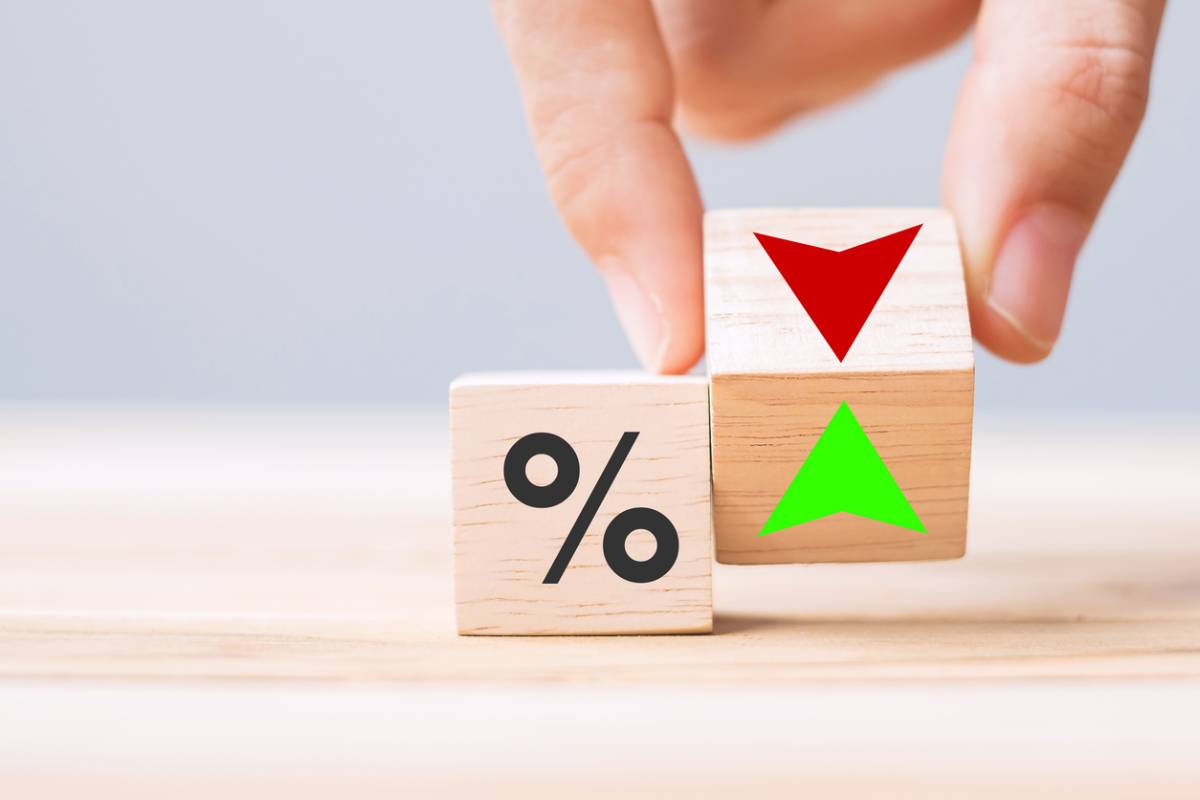
Throughout 2022, the Federal Reserve has moved decisively to tame inflation, with several interest rate hikes totaling 2.25 percent in less than six months. Will the Fed continue to increase rates to slow inflation, or will interest rates fall in 2023?
Increasing interest rates is a tightrope act where the Fed tries to slow inflation without causing excessive turmoil in the economy or a recession. The GDP did drop during the first half of the year; a shrinking economy during two consecutive quarters is the informal definition of a recession.
However, industry experts aren’t calling it a recession quite yet. NPR shares that the National Bureau of Economic Research, which determines whether the economy is in a recession, hasn’t made that declaration. Peak Finance Co as a Los Angeles mortgage broker has done the research to see what the odds are.
Will Interest Rates Fall in 2023?
According to investment firm Morningstar, interest rates could fall to 1.75 percent by the end of 2023, with the expectation that inflation will slow down and allow the Fed to reduce rates from their current level.
The investment firm also predicts that economic inflation will shift gears into reverse, with deflation occurring by the end of 2023. It may sound incredible that the inflation of today could lead to deflation and a reduction of interest rates in 2023. However, it’s unlikely that the Fed would introduce new interest rate hikes with economic contraction or a recession.
A report from CNBC suggests that some economists also believe the Fed will reduce rates by the end of 2023. At the very least, those economists suggest the Federal Reserve, as well as the European Central Bank, will pause interest rate hikes next year to avoid a significant hit on the world’s economies.
Looking at the Futures Market for Interest Rate Clues
Economists and investment firms are two important groups to consider when it comes to predictions on interest rate changes, but the future markets offer additional clues. According to an article on Forbes, the futures markets in some countries are predicting that interest rates could fall in the second half of 2023.
The futures market handles contracts between buyers and sellers, where buyers agree to purchase something at a predetermined price on a specific future date. In Australia, futures market activity indicates that investors think interest rates will fall by mid-2023 or, at the very least, stop their upward trajectory.
Reports on the American futures market reveal that investors believe interest rates will peak in January 2023 rather than the middle of the year. Futures activity suggests the benchmark U.S. interest rate will peak at 3.395 percent in January, which is an increase from the August 2021 rate of 2.25 to 2.50 percent.
What Will Happen to Mortgage Rates in 2023?
Correctly predicting interest rate changes may help applicants select the best type of mortgage at the right time. Are home buyers waiting to buy their homes due to higher interest rates? Are interest rate hikes causing reductions in home buying activity?
Recent estimates published by Fannie Mae suggest mortgage originations will fall by $90 billion to $2.6 trillion in 2022. For 2023, Fannie Mae expects mortgage originations will continue falling and reach just $2.2 trillion by the end of next year.
Mortgage origination is the phrase used to describe the process where a borrower applies for a mortgage, and a lender finalizes the transaction, which results in a mortgage loan. Lower mortgage activity may put some new home builders in a bind since it may take longer to sell their newly built homes.
Lower home buying activity may also cause some sellers to rethink listing their homes due to the expectation that home prices may stop rising or even start to fall. However, experts don’t expect dramatic changes to an already volatile housing market. It would likely take an actual recession to cause a dramatic fall in mortgage activity.
It’s also worth noting that the interest rates currently impacting the economy might not have as dramatic an effect on the real estate industry as one might expect. The record-setting increases in average rental rates may convince some to switch to homeownership to escape unsustainable rent hikes, which will keep the industry humming along.
